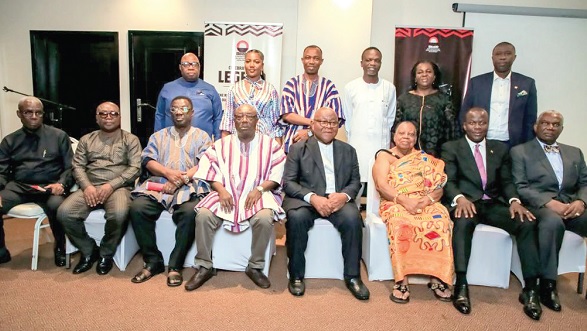
Emulate Dr Busia - Speakers urge govts at 110th anniversary commemoration
Speakers at a symposium have urged successive governments to emulate the regime and character of the country’s former Prime Minister, Dr Kofi Abrefa Busia, by implementing policies and programmes that contribute to promoting sustainable and holistic development of the country.
The speakers at the symposium which was held in Accra last Tuesday to mark the 110th anniversary of the birth of Dr Busia described him as a man whose name evoked excellence, and that he had the ability to take decisions and implement policies with lasting impact on future generations.
They said it was important for successive governments to link the works and ideologies of Dr Busia to the contemporary world, and see how they could build on his ideas to improve the country.
The main speakers were the Minister of Lands and Natural Resources, Samuel Abu Jinapor; the Minister of Environment, Science, Technology and Innovation, Dr Kwaku Afriyie, and a development economist, Dr George Domfeh.
Other speakers were the Member of Parliament (MP) for Okaikwei Central , Patrick Boamah, and a presidential hopeful on the ticket of the New Patriotic Party, Boakye Agyarko.
The event, which was held on the theme: “Relevance of Busia's Ideas to Our Contemporary Society”, was organised by the Busia Institute for Rural and Democratic Development to appreciate and demonstrate commitment to the ideals of the former prime minister.
It was chaired by a former Speaker of Parliament, Prof. Aaron Mike Oquaye, and attended by the daughter of Dr Busia, Akosua Busia.
Gracing the occasion was also the Paramount Chief of Asante Asokore, Dr Nana Susubiribi Krobea Asante.
Decentralisation
Prof Oquaye described Dr Busia as a man of great humility although he was from royal background.
He recounted how he was discovered at the early stage of his life by the British who shepherded him through secondary school and the university until he finally became a professor in sociology and anthropology.
He said during his time as prime minister, he fought hard to lead Ghana in the right direction.
Prof Oquaye also recounted that Dr Busia was on the verge of decentralisation of the country’s politics and developmental programmes fully when he was, unfortunately, overthrown by the Acheampong government.
“We have to learn from the pathway of such a great man.
He was a selfless and visionary leader who had the welfare of the country at heart,” he added.
Environment
As far back as 1970, Mr Jinapor said Dr Busia had a vision in green Ghana and embarked on a plantation development project under the government’s Rural Development Programme with the main focus on teak.
He said the objectives of the programme were to create employment and protect the environment.
Apart from that he said Dr Busia anticipated that electricity on wooden poles would be cheaper and better than the concrete ones and teak would be a very critical tool to the country’s electrification programme.
“At the time, this might have sounded too far a vision to realise since teak takes about 10 years to mature but today, millions of Ghanaians are enjoying the fruits of Dr Busia’s foresight in using teak to transmit electricity.
“The greatest gift we can dedicate to the memory of Dr Busia is to demonstrate our commitment to the green society he yearned for through good stewardship, the preservation of the environment and planting of trees, Mr Jinapor stated.
Economy
Dr Domfe also said everything Dr Busia did during his time made him different from his peers.
He said during his time he saw that the country needed the inflows of foreign direct investment and went ahead to open the frontiers of the country to receive foreign investors.
He said such a move attracted a lot of agitation from the Ghanaian populace at that time.
“They didn’t understand that foreign direct investment was the way to go.
They were complaining that Nkrumah had sent the whites away and Dr Busia had gone to bring them back,” he said
The development economist further explained that for China to become the second biggest economy in the world, it had to open its economic frontiers which attracted foreign direct inflows.
“And so if we had listened to Dr Busia, Ghana would’ve been far better than it is today,” Dr Domfe stated.
